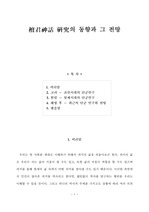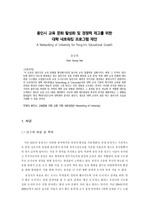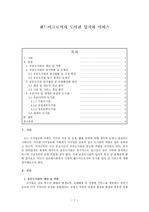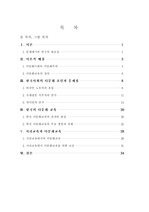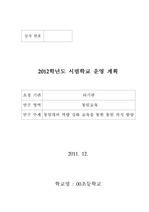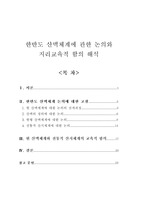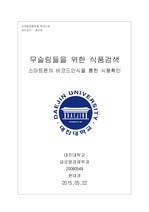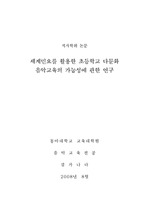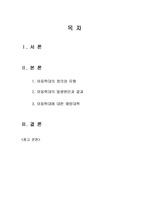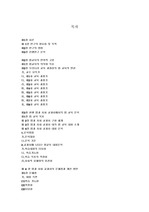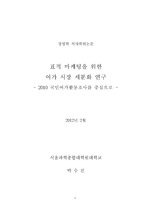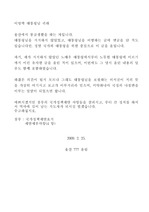

PARTNER
검증된 파트너 제휴사 자료
역사교육에서 역사지리적, 간문화적 접근 (Historical Geography and Intercultural approach in History Teaching)
11 페이지
최초등록일 2025.03.11
최종저작일
2013.08

-
초록
근대인의 삶과 의식ㆍ관념을 가장 강력하게 규정했던 국민국가(nation-state)의 틀이 점차 균열, 이완되고 있다. 다민족 사회, 다문화 가정이라는 말이 자연스러워지고 있다. 이러한 추세는 사회과, 역사과의 방향에 변화를 요구한다. 단일 민족, 단일 문화 관념에 기반한 일국사적 인식에 대한 비판적 접근이 이루어지고 있으며, 역사교육에서도 ‘역사’ 과목 설정, 세계사 교육에서 다문화적 관점, 상호 교류의 관점에 대한 논의 등이 진행되고 있다. 이러한 흐름에 맞추어 역사지리적 맥락, 간문화적 접근을 통해서 역사교육의 지평을 확장할 필요가 있다. 특히 인식 주체인 개인-민족/국민 간의 관계를 재설정할 필요가 있다. 이를 바탕으로 역사를 통해서 학생들에게 다양한 삶의 맥락을 보여 주고, 그런 상황에서 발생하는 문제들에 대해 생각하고, 질문할 수 있도록 해야 한다. 이러한 논의와 함께 세계화, 탈영토화, 다문화 사회로의 변화 가운데서도 역사ㆍ문화ㆍ사회적으로 형성된 국민 국가 공간은 ‘세계사회’의 핵심 영역으로 남아 일정하게 세력을 발휘할 것이라는 현실을 직시할 필요가 있다.영어초록
The frame of nation-state is being cracked these days. Such concepts as multiracial society or multicultural family are discussed frequently in history teaching. These trends require direction changes in history teaching. In 2007 National Curriculum, the middle school began to offer a history course. Middle School History contains the Korean history as well as the world history. Some history educators suggest that the Korean history and the world history should be taught in an interconnected and related form. In this paper, the author proposes that history teaching should be expanded to reflect the standpoint of historical geography and the intercultural approach. History teaching should provide students with various living styles and their problems so that the students raise questions on the issue. We may also have to face the reality in which the nation-states will remain strong in their roles and importance even though globalization and localization are in progress.참고자료
· 없음태그
-
자료후기
-
자주묻는질문의 답변을 확인해 주세요

꼭 알아주세요
-
자료의 정보 및 내용의 진실성에 대하여 해피캠퍼스는 보증하지 않으며, 해당 정보 및 게시물 저작권과 기타 법적 책임은 자료 등록자에게 있습니다.
자료 및 게시물 내용의 불법적 이용, 무단 전재∙배포는 금지되어 있습니다.
저작권침해, 명예훼손 등 분쟁 요소 발견 시 고객센터의 저작권침해 신고센터를 이용해 주시기 바랍니다. -
해피캠퍼스는 구매자와 판매자 모두가 만족하는 서비스가 되도록 노력하고 있으며, 아래의 4가지 자료환불 조건을 꼭 확인해주시기 바랍니다.
파일오류 중복자료 저작권 없음 설명과 실제 내용 불일치 파일의 다운로드가 제대로 되지 않거나 파일형식에 맞는 프로그램으로 정상 작동하지 않는 경우 다른 자료와 70% 이상 내용이 일치하는 경우 (중복임을 확인할 수 있는 근거 필요함) 인터넷의 다른 사이트, 연구기관, 학교, 서적 등의 자료를 도용한 경우 자료의 설명과 실제 자료의 내용이 일치하지 않는 경우
찾으시던 자료가 아닌가요?
지금 보는 자료와 연관되어 있어요!
문서 초안을 생성해주는 EasyAI



